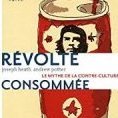-
Posts
1,333 -
Joined
-
Last visited
Everything posted by GlennGould
-
Kada kažem Ride - mislim na
-

Cincinnati masters 2019 - nastavak letnje North American HC sezone
GlennGould replied to wwww's topic in Tenis
Opasno je jak Djoković. Biće vatromet na USO 🙂 -

Cincinnati masters 2019 - nastavak letnje North American HC sezone
GlennGould replied to wwww's topic in Tenis
Daj bre ni MTO nije uz’o. Pa nije od svilene vune Novak... ccc -

Klimatske promjene, zagađenje i uništavanje životne sredine
GlennGould replied to ...'s topic in Društvo
Ma sve pet momci, bez bespotrebnih ličnih peckanja i sujete idemo dalje kvalitetno i argumentovano -
@Constantin brilijanto & britko drži čas na Ekonomiji: Proizvodnja u SFRJ
-
Malo manje bućke i bavljenja sagovornicima - malo više držanja teme ili otvaranje novih. Hvala.
-

Klimatske promjene, zagađenje i uništavanje životne sredine
GlennGould replied to ...'s topic in Društvo
Ni ja tvoje vrednovanje knjige na osnovu potencijalnog čitalaštva... -

Klimatske promjene, zagađenje i uništavanje životne sredine
GlennGould replied to ...'s topic in Društvo
About Black Swan Rev Austrian Econ (2008) 21:361–364 DOI 10.1007/s11138-008-0051-7 Nassim Nicholas Taleb: The black swan: The impact of the highly improbable New York: Random house, 2007, 366p. Gene Callahan Published online: 10 May 2008 Nassim Nicholas Taleb’s The Black Swan is a fascinating but deeply flawed book. The book’s central thesis, that the statistical models beloved by mainstream economists and social scientists apply to the real world at best roughly and sometimes very poorly indeed, will find favor with Austrian and other heterodox economists. However, what could have been a sound if more modest book is damaged by Taleb’s enthusiastic embrace of the role of maverick intellectual and his consequent weakness for hyperbole and unfounded criticisms of those he sees as ivory tower academics. Academics are not always right, of course, and there is a place for outsider critiques of their ideas, but neither are they always wrong, and it is all too easy to fall into the trap, as Taleb does, of criticizing ideas one does not fully grasp. Taleb’s central metaphor of the eponymous black swan arises from the fact that scientists purportedly held that, by inductive reasoning, they could conclude that all swans are white, since every instance of one they had seen was so colored. Then, in Australia, black swans were discovered, upsetting their conclusion and demonstrat- ing the flaw in inductive reasoning, the same flaw noted by Taleb’s philosophical hero, Sir Karl Popper. If that history is correct, then the scientists involved were certainly guilty of applying induction naively. But such a naïve induction by simple enumeration of instances already had been criticized by some of the earliest empiricists, such as Bacon and Boyle. Many philosophers of science have argued that Popper’s critique left more sophisticated versions of induction standing.1 Taleb ties Popper’s case against induction, and thus his swan metaphor, to contemporary statistical practice by arguing that the widespread faith that the degree of variation exhibited by many, perhaps most, real-world phenomena is closely modeled by the notorious bell curve. He contends that this often is an unjustified induction based on previously seen cases. Rare events, by definition, will not appear very often in the evidence, but the failure to find them in a small sample does not mean they occur as infrequently as a Gaussian distribution implies that they will. The bell curve may offer a good description of events in what Taleb calls “Mediocristan,” the land inhabited by things like the distribution of height among adult humans or wages among plumbers. But it is a very poor fit for depicting events from Extremistan, where dwell phenomena like the distribution of wealth in modern economies and book sales among published authors. We never encounter a human being 1,000 times taller than the average, but Bill Gates’ wealth or J.K. Rowling’s book sales are the equivalent of a million-foot tall person compared to the norm. This statistical blindness to the possibility and impact of the highly improbable, Taleb contends, causes us serious trouble. The danger inherent in assuming that future events will not differ dramatically from what we have typically observed in the past becomes manifest when we are blindsided by the terrorist attacks of 9/11 or an unprecedented market crash. We are like Bertrand Russell’s chicken, a good (naïve) inductivist; we conclude that, because in all previous instances the farmer’s appearance meant mealtime had arrived, it will always mean that, only to be rudely disabused of the theory when the day comes for the farmer’s chicken dinner. So far, so good: Taleb is on target in criticizing many social theorists for trying to force-fit reality into familiar models simply because they are adept at working with those models rather than accepting that the real world is far richer than their abstractions and striving to discover novel models that better depict actual events. There is a quite sound and useful book that the discerning reader can extract from the ambitious but inadequately conceived embellishments with which Taleb festoons his basic thesis. As mentioned above, Taleb tries to ground much of his critique of mainstream, statistical thought in the philosophy of science of Sir Karl Popper. Popper famously held that science can never confirm its hypotheses but only falsify them or fail to do so. While Taleb places much stress on the importance of that idea for his work, he does not seem to really grasp its implications. Of course, no Popperian could actually make it through a single day alive without using inductive inferences. But most Popperians at least write about Popperianism consistently. Taleb, on the other hand, on one page claims that “there is no such animal as corroborative evidence,” and then, over the next 20 pages, asserts at least half a dozen times that some theory has been “proved,” “shown,” “demonstrated,” and so on, by...corroborative evidence! Did Taleb just mouth Popper’s words with no idea what they meant? Taleb ridicules the “dull” writing of academics; he has avoided that flaw—his writing is not dull in the same way that watching a multi-car pile-up is not dull. At times his slipshod composition leaves the reader baffled as to what he meant to say. Taleb lists fields with true experts—livestock judges, astronomers, test pilots—and fake experts—stockbrokers, clinical psychologists, psychiatrists. What is the difference? “Simply, things that move, and therefore require knowledge, do not usually have experts...” It’s very hard to guess what Taleb is getting at here; certainly, livestock, planets, and airplanes all move quite a bit! Does he mean “self- moved”? No, livestock are self-moved as well. Taleb is not stupid, but he is arrogant, and his arrogance creates this sort of sloppy prose. The sloppiness rears its head not just in Taleb’s writing but in his thinking as well (in that the two can be held separate). For example, he writes, “in a primitive environment there is no consequential difference between the statements most killers are wild animals and most wild animals are killers.” That must be why primitive man was constantly fleeing from the stray slug, chipmunk, or butterfly that he encountered while foraging! Taleb displays a deep scorn for academic historians, finding their work “dull,” which may explain why he seems to have little idea of the essential character of historical understanding. He criticizes historians for devising explanations that, he contends, make entirely unexpected events “predictable” in retrospect: “This simple inability to remember not the true sequence of events but a reconstructed one will make history appear in hindsight to be far more explainable than it actually was—or is.” The writing is again dreadful, but, even suitably amended, the sentence is still false—history has nothing to do with “remembering” sequences of events, and it is exactly as comprehensible as historians are able to render it. The fact that the outcome of some past situation may appear more intelligible to an historian than it did to the participants is a virtue, not a vice, of history. Only when the historian abandons her proper aim of discovering what actually transpired in the past and attempts to sit in judgment of historical figures, such as declaring, “Chamberlain should have seen that appeasing Hitler would come out badly,” is she guilty of the sin for which Taleb condemns the entire discipline. In making the above complaint about the efforts of historians, Taleb has failed to recognize that statistical prediction is a feature of physical science and plays no part in historical investigations. The historian offering an explanation of some specific historical episode is not attempting to comprehend what occurred as an instance of some idealized pattern abstracted from a family of events with which it is supposed to share some significant characteristics. As Mises notes, “The notion of a law of historical change is self-contradictory. History is a sequence of phenomena that are characterized by their singularity. Those features which an event has in common with other events are not historical” (1957: 212).2 The historian is seeking the unique and unrepeatable antecedents of the event under investigation in order to render its individual appearance on history’s stage more intelligible. As such, how “predict- able” the event was at its time is irrelevant, since for the historian the “odds” of its having happened are 100%! And since the historian aims to explain that unique episode in terms of the concrete happenings that lead up to it, concepts such as “randomness,” “chance,” and “improbability” are categorically excluded from her analysis. Taleb writes, “But it is hard to look at a computer or a car and consider them the result of aimless process. Yet they are.” Certainly, if we restrict ourselves to considering the human past in terms of matter and energy mechanically interacting to produce unwilled motion, then we have pre-determined that all we will discover are aimless processes. However, there is no reason we should not conduct other explorations using other search rules, such as attempting to understand the past as arising from purposeful human action. From that perspective, it would be ludicrous to propose that computers and cars were the outcome of “aimless process,” since it is obvious that their inventors set out intending to create useful machines and were not merely throwing together random materials only to be shocked that the result could, for instance, be used to get around town more rapidly. Taleb contends that we ought to “downgrade ‘soft’ areas such as history and social science to a level slightly above aesthetics and entertainment, like butterfly and coin collecting.” His contempt for the results of historical research is also the product of his erroneous belief that history is just an impoverished and feeble attempt to discover scientific truths from our past, rather correctly recognizing that historical understanding is a categorically distinct mode of grasping reality. Unable to evaluate the subject using its proper, internal standards, Taleb cannot conceive that history, pursued with its own characteristic methods, can achieve results every bit as “hard” and just as much based on objective evidence as do physics or chemistry. Taleb’s misunderstanding of history leads to absurdities like his attempt to answer a genuine historical question, “Why didn’t more people die from the bubonic plague?” by means of a fact about later conditions, namely, that if the plague had been more deadly, we would not be here to ask the question! Real historians, the ones whose work Taleb disdains, regularly answer such questions with authority: it is now understood, for instance, that the chief cause of the collapse of the Roman Empire was population decline. In summary, Taleb is guilty of severe over-reaching. Rather than limiting himself to rigorously exploring the implications of his genuine insights on the misuse of statistics, he chose to use them as a platform from which to comment upon whatever topic happened to enter his mind as he wrote, however little familiarity he had with the specialized literature in the area. If he did not hold academic specialists in such contempt, it might have occurred to him that, whatever their faults, people who have devoted decades of their lives to better understanding some field, for example, the philosophy of history or the philosophy of science, are likely to have something to say on the subject, something that might even be worth listening to before one decides to pontificate on how wrong-headed all of the experts are. 1 See Callahan, G. “The Necessity of the A Priori,” Critical Review, Vol. 18, No. 4, 2007 for a summary of recent literature on this point. 2 Mises, L. von (1957) Theory and History, Auburn, Alabama: Ludwig von Mises Institute, p. 212. -

Cincinnati masters 2019 - nastavak letnje North American HC sezone
GlennGould replied to wwww's topic in Tenis
Valjda mu je ovo 4 consecutive error-proof TB -

Cincinnati masters 2019 - nastavak letnje North American HC sezone
GlennGould replied to wwww's topic in Tenis
Ma kakav Rubljev, RBA i ostala buranija... Budimo ozbiljni. -
@Milenko Puzigaca Potenciranje i generalizacija svega ruznog sto postoji u jednom drustvu, iskljucivost u tome i diskvalifikovanje drugih forumasa kojima se direktno replicira putem teranja u torove nije način kojim vaše uvaženo mišljenje može najbolje doprineti razvoju diskusije. @Pavaroti Rečnik uvredljivih generalizacija neće biti tolerisan (“baustelac”).
-
“Pa dobro, to je vec deo trenda - i pored najboljih univerziteta situacija na nivou cele zemlje je slicna kao i sa zdravstvom. US pocinje debelo da zaostaje a razlozi su politicko-strukturalne prirode. Posledice po demokratiju sa opstim pravom glasa gde postoje ovolike razlike i masa u neobrazovanim ljudima su naravno veoma problematicne. Oci nacije ni to nisu predvideli.” Zbilja? Alexander Hamilton, The Federalist Papers, Essay #68 link James Madison, iako principijelno protiv, u debati izričito ističe prednosti u odnosu na popular vote link etc.
-

Cincinnati masters 2019 - nastavak letnje North American HC sezone
GlennGould replied to wwww's topic in Tenis
Ako mu je verovati, “jedva čeka da ga sretne na USO” -

Cincinnati masters 2019 - nastavak letnje North American HC sezone
GlennGould replied to wwww's topic in Tenis
Ne znam niti želim nagađati. Ono što je sigurno, to je da mu se danas nije ni igralo ni zadržavalo na terenu. Po svemu sudeći je pala procena da se treba “čuvati” za USO. -

Cincinnati masters 2019 - nastavak letnje North American HC sezone
GlennGould replied to wwww's topic in Tenis
Expresno natrag u svlačionicu... (reklo bi se planski) -

Cincinnati masters 2019 - nastavak letnje North American HC sezone
GlennGould replied to wwww's topic in Tenis
...Should I stay or should I go, now...? -

Bugovi i Moderacija [stari topici, greskom spojeni]
GlennGould replied to McLeod's topic in Predlozi, Kritike, Pohvale...
Ove “penzionere” sa fondovima preko bare, drmni x10 (mnogo trollaju) -

Cincinnati masters 2019 - nastavak letnje North American HC sezone
GlennGould replied to wwww's topic in Tenis
Fed izgleda još uvek nije rasčistio sa izgubljenim Wimbledonom. Bilo bi dobro da se upravo ovde i sada krene na USO... +k’o puškom da su ga isterali na teren. Otaljava, glave bez... -

Cincinnati masters 2019 - nastavak letnje North American HC sezone
GlennGould replied to wwww's topic in Tenis
Izuće ga Novak iz cipela... -

Cincinnati masters 2019 - nastavak letnje North American HC sezone
GlennGould replied to wwww's topic in Tenis
Ako ima neki TheO bis da mi kaže ko mu je barber? #fashionpolice





